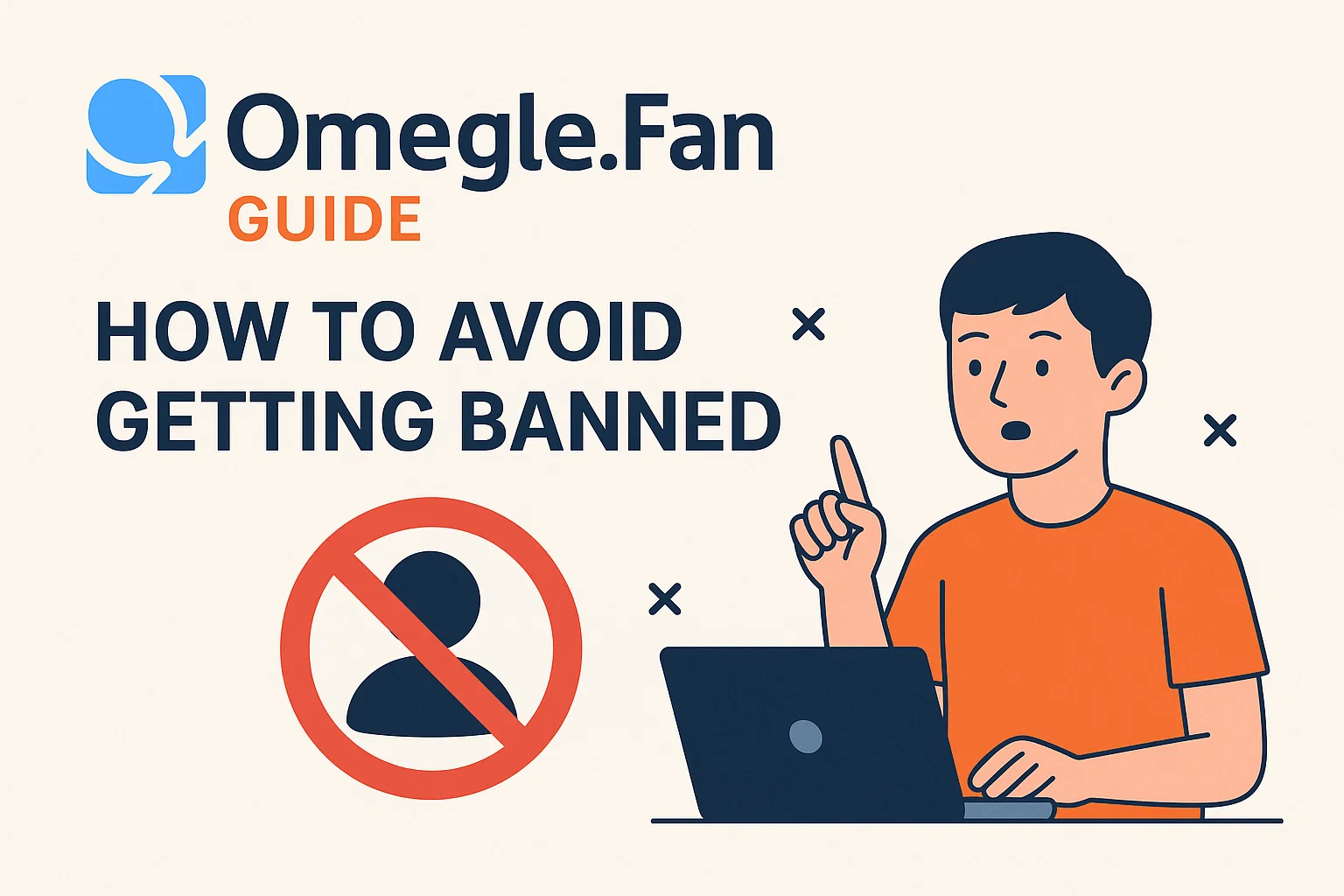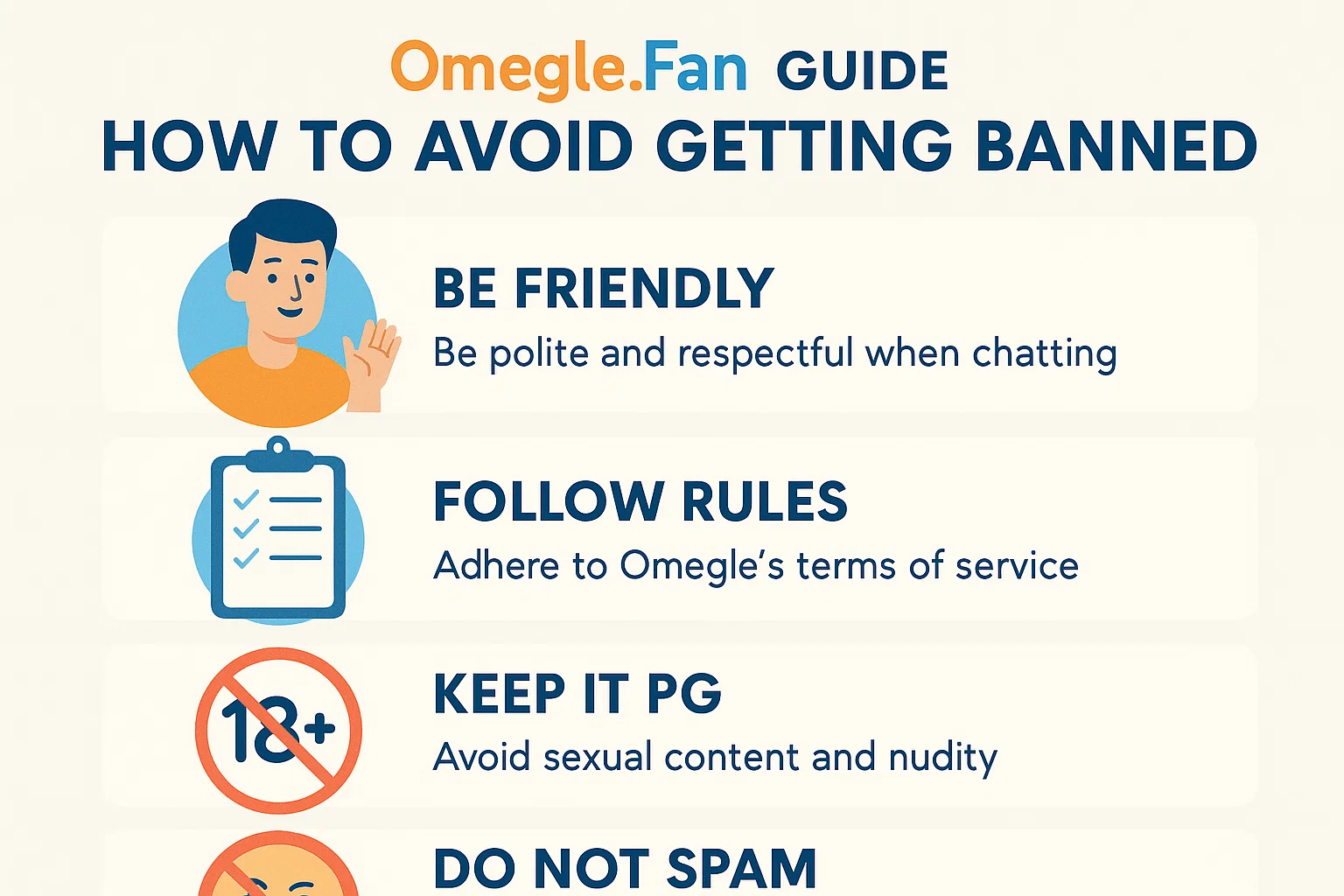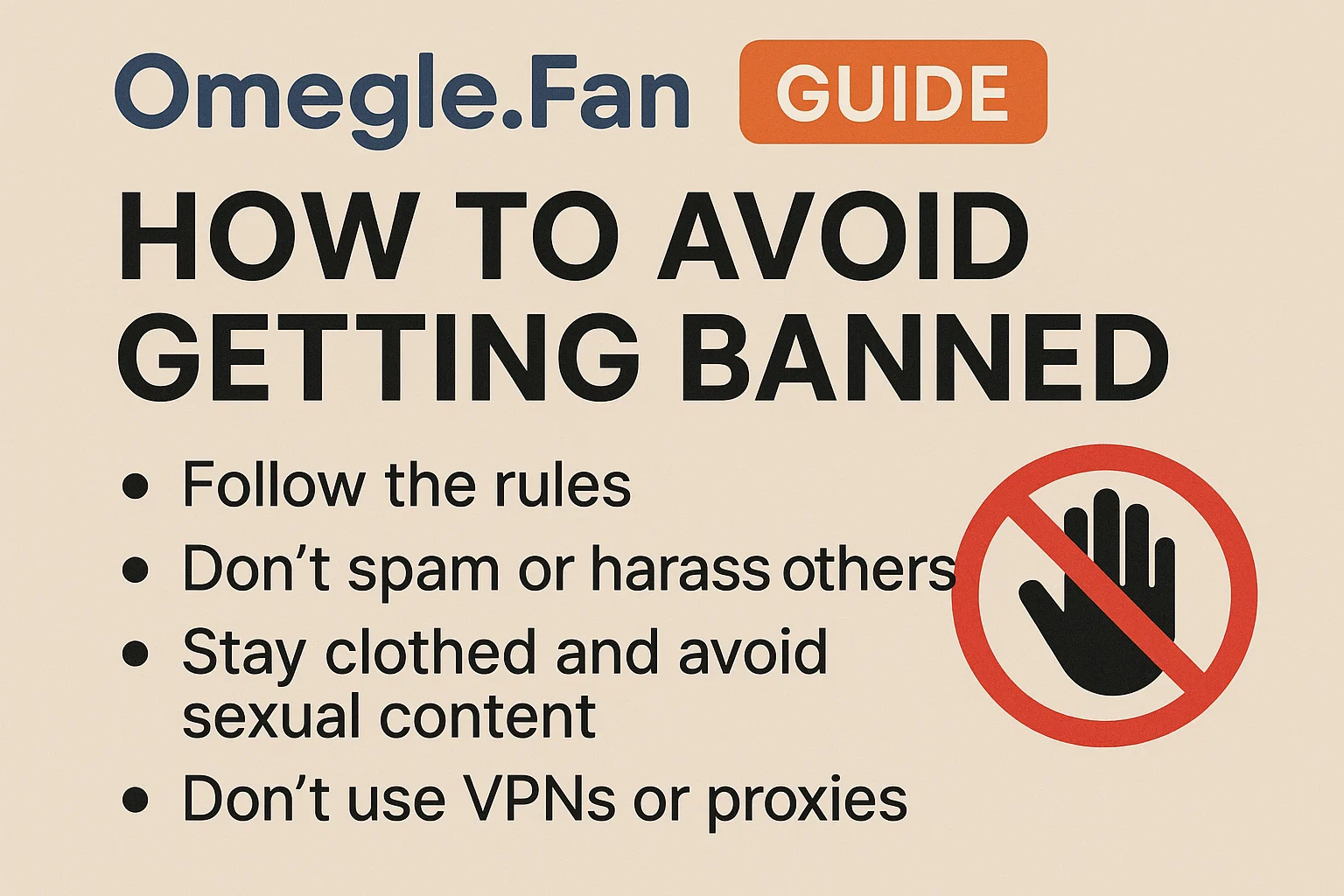Omegle is a popular online chat platform that connects users through text and video chat. However, to ensure a safe and enjoyable experience for all users, it is essential to understand and adhere to the site’s rules and guidelines. Violating these terms can lead to being banned from the platform, which is something many users wish to avoid.
The most significant prohibition on Omegle is the presentation of explicit content. This includes nudity, sexual behavior, or any graphic representations deemed inappropriate. Such actions not only violate Omegle’s rules but may also contribute to a negative atmosphere for other users. Inappropriate behavior also encompasses harassment, bullying, or threatening language, which can understandably lead to immediate bans.
Moreover, users should refrain from engaging in spam activities. This includes sending repetitive messages, posting links without context, or attempting to advertise products or services. Such actions disrupt the conversation flow and go against the principles of respectful interaction that Omegle encourages.
To maintain an enjoyable chatting environment and learn how to avoid being banned on Omegle, users should familiarize themselves with the common behaviors that lead to bans. For instance, excessive use of foul language or expressing hate speech can quickly result in a ban. Users should also be cautious of their conduct during video chats, as inappropriate gestures or facial expressions can easily be misconstrued and flagged by the system.
By following these guidelines and being mindful of their online conduct, users can help foster a respectful atmosphere and significantly reduce their chances of facing a ban on the platform. Understanding the rules of the community is the first step toward enjoying a seamless experience on Omegle.

Engaging with others on platforms like Omegle can be an enjoyable experience, but it is essential to adhere to best practices to ensure both parties have a positive interaction. To begin with, when introducing yourself, aim for a friendly and open demeanor. A simple "Hi, I'm [Your Name]. How are you today?" can set the tone for a pleasant conversation. This initial introduction is crucial as it establishes a relaxed atmosphere, promoting a sense of comfort and willingness to communicate.
Reading social cues is an essential skill during online encounters. Pay attention to your conversation partner’s responses, body language, and tone. If someone appears disengaged or uncomfortable, it is essential to adjust your approach. For instance, if they seem to be providing short answers or frequently changing the subject, it may indicate a desire to end the conversation. Respecting these signals not only reflects on your character but also aids in how to avoid being banned on Omegle.
Mutual respect and consent are cornerstones of any interaction, particularly in a setting like Omegle where anonymity can lead to misunderstandings. It is important to treat others with dignity and to refrain from discussing sensitive topics—such as politics, religion, or personal issues—unless both parties indicate they are comfortable with such discussions. This proactive step helps to mitigate any potential triggers that may lead to reporting or banning.
Moreover, ensuring that all parties feel respected is paramount. If a conversation veers into uncomfortable territory, don’t hesitate to steer it back to a neutral subject or politely exit the chat. This strategy not only aids in creating a positive dialogue but also serves as a protective measure against the risk of being reported. Engaging thoughtfully and respectfully can significantly enhance your experience on Omegle and lower the likelihood of facing temporary or permanent bans.

When using platforms like Omegle, it is crucial to adopt technical strategies to minimize the risk of getting banned and to enhance your privacy. One of the most effective methods is the use of Virtual Private Networks (VPNs) or proxies. These tools help mask your IP address, making it more difficult for the platform to trace any inappropriate activity back to you. By encrypting your internet traffic and routing it through a different server, a VPN not only enhances your anonymity but also allows you to connect to Omegle from different geographic locations. This can be particularly useful if your original IP has been flagged or banned in the past.
Additionally, it is essential to manage your browser settings effectively. Utilizing incognito or private browsing modes can prevent the storage of cookies, which are often used by websites to track user behavior. Clearing your browsing history on a regular basis will also help in reducing the chances of being recognized for previous misconduct on the platform. When considering how to avoid being banned on Omegle, understanding the impact of IP bans is critical. A shared IP address, often found in public or communal Wi-Fi networks, can increase the likelihood of being banned if another user engages in inappropriate behavior. Therefore, it is advisable to connect to the internet via a secure and private network whenever possible.
Lastly, always remember to keep your personal information private while chatting on Omegle. Sharing identifiable details not only compromises your safety but could also inadvertently lead to a ban if the platform's policies are violated. By incorporating these technical measures, users can significantly reduce the likelihood of getting banned while enjoying their online interactions with greater privacy and security.

Being banned on Omegle can be frustrating, especially if you are unsure of why you were banned in the first place. However, there are steps you can take to address this situation effectively. First, it's important to understand that if you receive a ban message, it may be temporary. In many cases, bans can last from a few days to several weeks. During this time, it is crucial to reflect on your behavior during previous chats to identify any potential issues that may have resulted in the ban.
If you believe the ban was a mistake, you can attempt to appeal it. While Omegle does not have an official appeal process, some users have reported success by contacting their support team through social media channels. To do this, ensure you have your details ready, including any relevant information about your account and the nature of your ban. Be polite and concise in your request for reconsideration.
In the meantime, you might want to consider alternative online chat platforms. There are numerous options available, including Chatroulette, Tinychat, and Bazoocam, which offer similar functionalities without the risk of a ban from Omegle. Before using these platforms, familiarize yourself with their rules to avoid repeating any mistakes that could lead to another ban.
Additionally, it's important to learn from this experience to minimize the possibility of future bans. Adopt practices such as adhering to community guidelines, avoiding inappropriate content, and being respectful in conversations. If you decide to return to Omegle after your ban, consider a fresh start. Change your IP address, if necessary, by resetting your modem, and ensure that your chat approach is respectful and compliant with platform policies. By implementing these strategies, you can improve your chances of a positive experience and engage responsibly within the Omegle community.